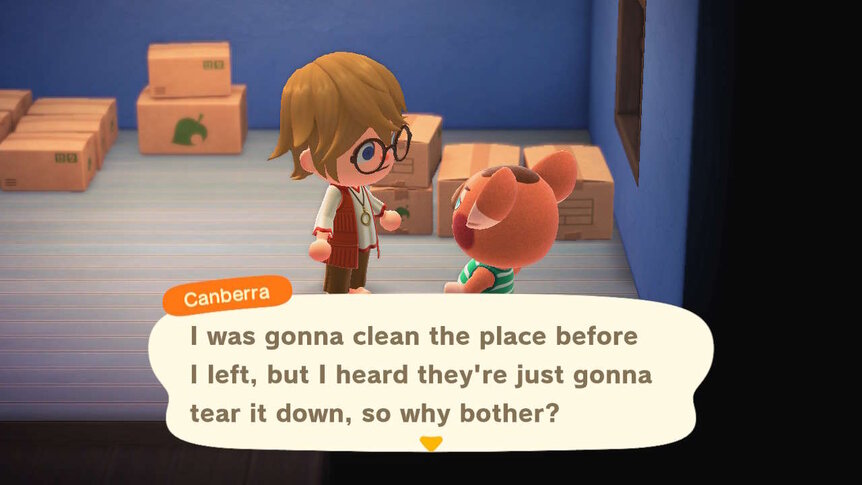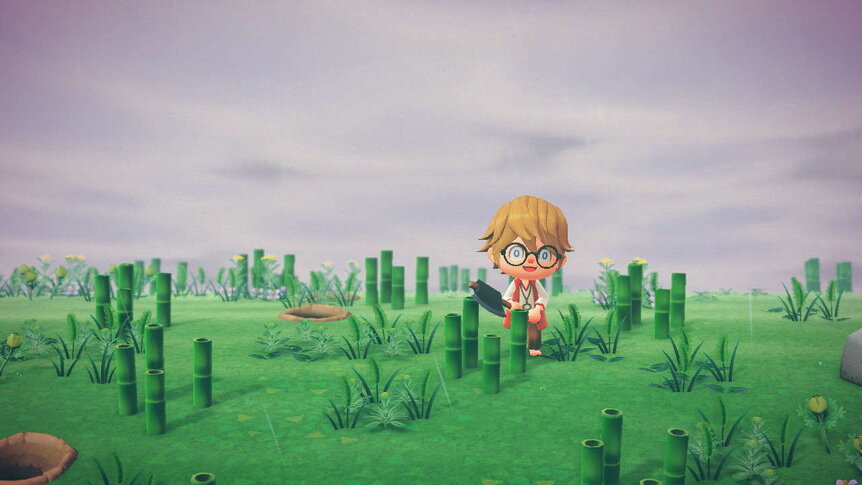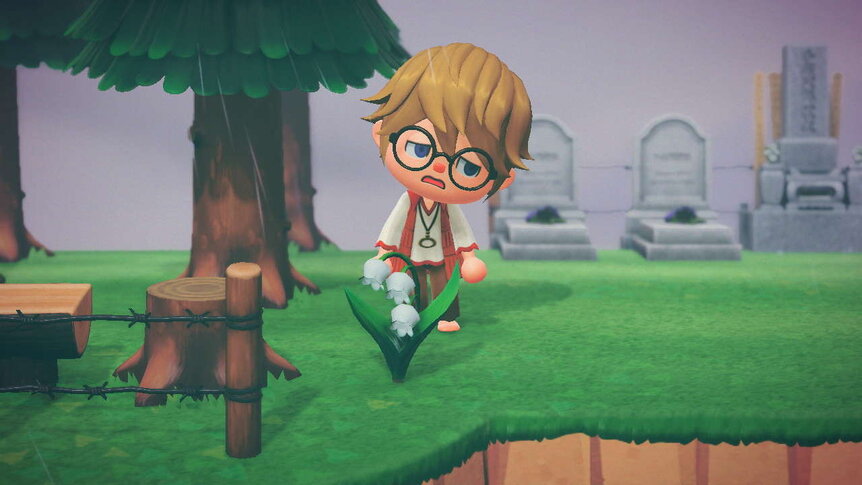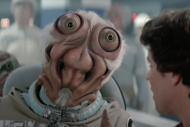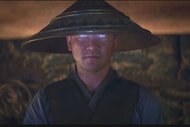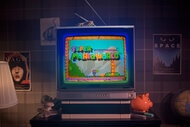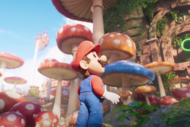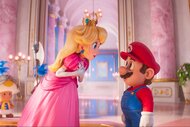Create a free profile to get unlimited access to exclusive videos, sweepstakes, and more!
Is everyone else also discovering the secret existential horror of Animal Crossing: New Horizons?
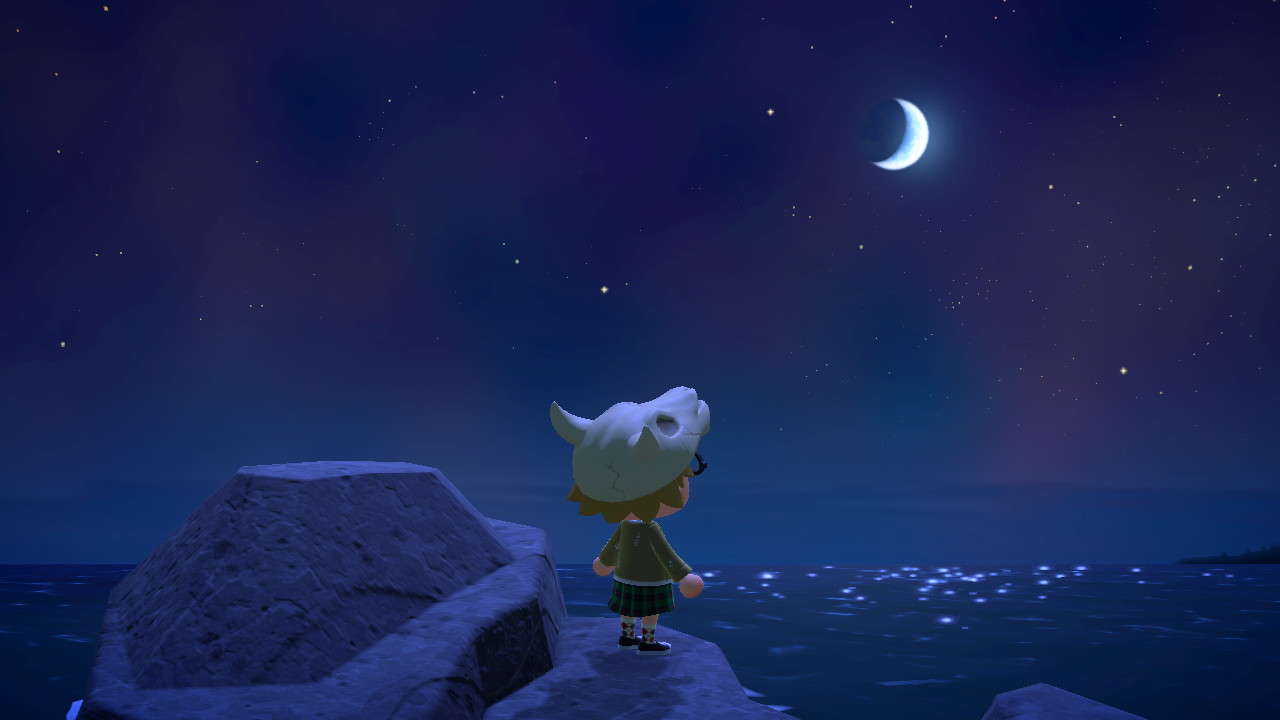
When Animal Crossing: New Horizons was released in March, a few weeks into the still-ongoing pandemic, many found the game to be a relaxing balm, a microcosm of peace and calm during the various and plentiful turmoils of 2020. Record-breaking numbers of us have taken to our tiny digital islands in order to live vicariously through cartoon avatars of ourselves, seeking a respite from our real lives.
Ironic, then, that New Horizons seems custom-built for pondering the banalities of the nightmare that is human (and anthropomorphic animal) existence.
The appeal of the game is, undoubtedly, its simplicity. Catch and chop and dig and sell and catch and chop and dig and sell. The endless repetition of the game is soothing in a way, almost meditative — at first, anyway. Eventually, these adorable chores can and will become ... well, chores. The charm of chasing butterflies will molt into compulsion, and then, inevitably, resentment.
Doing the same thing over and over and over, after all, is both the apocryphal definition of insanity and an actual punishment in classical Greek mythology. And this repetition is the core of New Horizons — every day starts with you walking out of your front door, regardless of where you ended up the night before. Every week brings the same visitors, reciting the same lines; the same four fossils buried somewhere in the same patches of soil. It’s Groundhog Day, if nothing ever changed.
One could, of course, argue that all video games fall prey to mindless repetition eventually — but New Horizons makes it a feature, not a bug. You pull weeds and clutter up your house. The end. In other games, grinding is a means to an end, or maybe a reward for beating the game, the freedom to just exist as a metaphor for saving the world.
But in New Horizons, blind consumption is the narrative arc.
The closest thing to an endgame is obtaining a five-star rating for your island — a goal that can only be achieved by filling the island with stuff. (Fences, mostly, if Isabelle has her way.) The same goes for netting a gold trophy from the Happy Home Academy. “Having things” is the only true metric of success.
And there is no abstaining: Random items literally fall from the sky or from trees, to be kept or sold, forcing the player into the closed system of the island’s capitalist dystopia. There are a finite amount of items to own, and finite animals to capture — sooner or later you will, to borrow another game’s motto, catch them all. The same products cycle through Nook’s Cranny, the same clothes at the Able Sisters’ tailor shop. And none of them really do anything — there are no stats to goose — they’re purchases, and that’s it.
I can wear a sequined blazer and pretend to be a stand-up comedian or a Viking in my helmet and boots, but nothing actually changes. My primary task is still to collect shells and dig up fossils, regardless of any profession I might feign. I can never be more than a cog in Tom Nook’s corporate machine.
Because, truthfully, there’s no winning. Once you reach a five-star island, there's nowhere to go. And yet you still do. You achieve your goals, and then ... what? There’s no rolling of the credits — that happens earlier, in the “middle” of the game, after enticing K.K. Slider to your island. You don’t even get to celebrate like you do upon completion of a bridge or ramp. Isabelle congratulates you and gifts you with a recipe for a golden watering can, an item that you then have to build. You have to keep playing the game to get your gift.
You’re not allowed to stop. You can never stop.
But you can at least leave your island, right? Wrong. Mystery islands are, almost without fail, the same as yours — the same flowers, the same fruits. You thrill for one even slightly different, an apple or a peach, a new type to be planted and plucked like all the rest. Visiting friends’ islands requires coordination, and they are, really, more of the same, just occasionally in different colors. Because even travel in New Horizons is empty, an illusion.
Neighbors seem like the exception: They move to your island looking for an adventure, then move away to continue that quest elsewhere. But that choice is firmly in your hands — you have to decide whether to let these digital friends live their life or stay solely for your selfish pleasure. They, truly, don’t care. But you do.
Keeping a neighbor brings guilt; you’ve dashed their dreams. Letting them go, meanwhile, brings the full bore of existential dread down upon you. Because when they do leave, they talk about how excited they are for all the new things they're going to see and experience — things you never will. Because you're trapped on that island, forced to watch everyone you love leave you, like Asimov's Bicentennial Man, or Jeff Winger during the Yahoo! season of Community.
The only thing that makes life worth living, The Good Place once argued, is that it ends. But this game will never end. Tom Nook will never stop. Even time itself has no meaning here.
This is, of course, just the tip of the metaphysical iceberg. What does it mean that hamsters can be both owned as pets and visited as neighbors? I apologize to ladybugs and hermit crabs, implying that they have some semblance of autonomy — and yet I keep catching them, keep selling them, ad infinitum. And what exactly is our relationship to our digital avatars? Are they characters? Or am I piloting a version of myself? Am I in this game? Is this game my life?
What, Animal Crossing: New Horizons seems to be asking, even is life?
Or maybe it's just a cute diversion and I need to call my therapist more often. Honestly, it feels like it could go either way.
